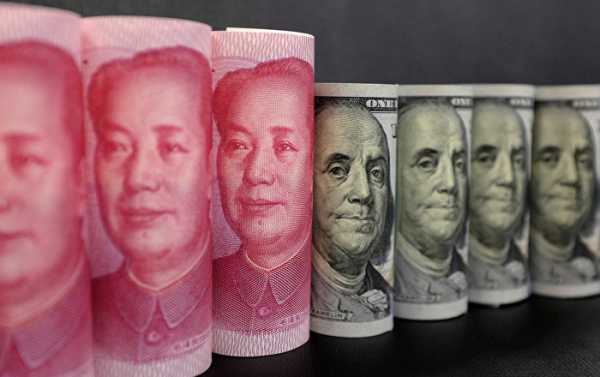
The China Banking and Insurance Regulatory Commission (CBRC) has called on the nation’s lenders to step up their loan issuance and improve their use of capital in order to support economic growth amid heightened international risks.
Kristian Rouz — Mainland China’s financial sector regulator has asked the country’s banks and non-bank lenders to boost the financing of export-reliant companies and infrastructure sector enterprises. The move comes as China is seeking to support its economic growth amidst the intensified trade spat with the US.
China Banking and Insurance Regulatory Commission (CBRC) said the Chinese lenders should refrain from denying new loans to creditworthy customers caught in the crossfire of what it called ‘temporary difficulties’.
The regulator stressed that the issuance of new loans is crucial to maintaining overall economic momentum, but warned the financials against accumulating their own debt, specifically warning against so-called ‘shadow banking’ practices.
“We must focus on clearing the mechanism of money and credit transmission and improve the quality of financial services,” the CBRC said in a statement.
The regulator urged lenders to increase the share of long- and medium-term loans in their financing of corporate clients. It said shorter-term loans create difficulties for many companies and impair their financial results at the end of each month or quarter.
This comes as the central government in Beijing has been concerned with the possible downside effects of the ongoing trade standoff with the US. Higher tariffs might restrain Chinese exports, and limit the influx of hard currencies into the country, which in turn could hamper domestic investment and infrastructure development.
The CBRC said elevated levels of domestic lending could offset these risks, and prevent the possible harmful spillovers as well.
“Effectively, our goals are to promote stable employment, stabilize financing, stabilize foreign trade, stabilize foreign investment, stabilize domestic investment, stabilize investor expectations, and achieve sustainable growth in the financial sector and real economy,” the CBRC’s statement read.
Last month alone, China increased the value of its fixed-asset investment projects almost four-fold compared to June. The government in Beijing believes higher levels of business activity in the construction sector could help support the GDP growth rate at at least 6.5 percent per year.
For its part, the CBRC urged national lenders to allocate additional financial resources to ‘weak spots’ in Beijing’s infrastructure plan. The regulator also said lenders should partner with provincial and local governments to ensure regional economic planners have enough financial resources to achieve the goal of infrastructure development set by the Communist Party.
“Under the premise of not increasing the implicit debt of local governments, lenders will ramp up the credit supply for infrastructure projects. Insurance funds should take advantage of long-term investment and actively finance the country’s major strategies and key projects through various forms such as bonds, stocks and fixed investment,” the CBRC said.
The regulator also called on lenders to pour additional liquidity into the companies exposed to foreign trade risks, including export-reliant manufacturers, and import-dependent retailers and service sector companies. The CBRC said the momentum in these industries could be maintained despite the projected decline in effective demand for Chinese products overseas.
The CBRC said lenders should enhance their consumer financing as well. This would serve another plan set by Beijing: to grow the domestic consumption of China’s manufactured goods, which would allow it to gradually decrease the nation’s reliance on exports.
Additionally, the regulator also urged lenders to review their existing loans and improve the efficiency of their use of capital. This comes in response to the growing share of non-performing loans in China’s corporate sector, which has been burdened by the excessive volume of shadow financing as well.
“Actively use asset securitization and transfer credit assets to revitalize existing assets and improve the allocation and use efficiency of funds,” the CBRC said.
All these steps, the Chinese regulator believes, could give the nation’s economy enough support to weather the storm of the ongoing global trade war without substantial losses or too much industrial capacity being lost or damaged.
Sourse: sputniknews.com






